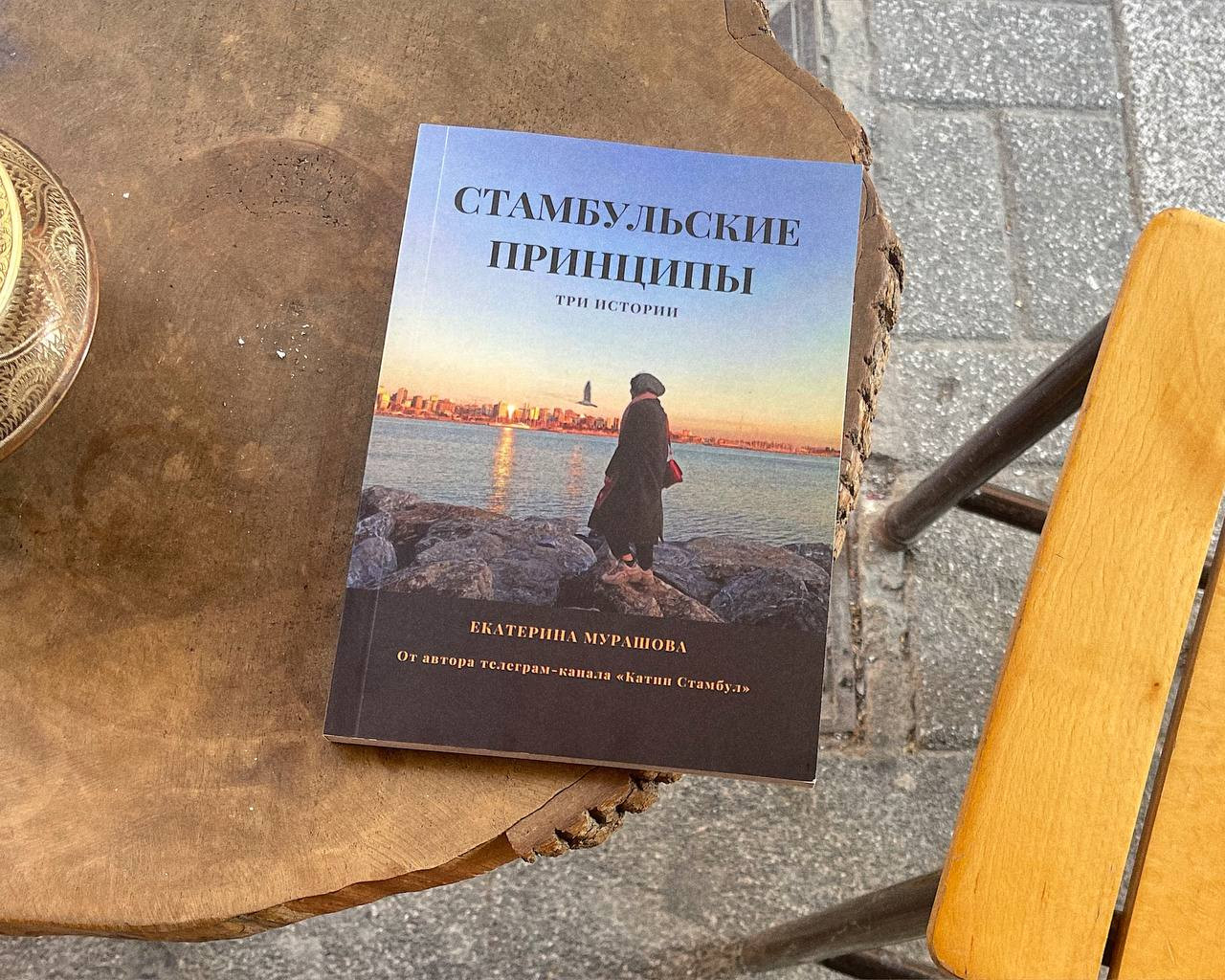Empowering Women's Voices: 'The Istanbul Principles'
“The Istanbul Principles: Three Stories” is a book written by the novelist and poet Ekaterina Murashova in 2022. It falls under the genre of flash fiction and revolves around the lives of three women, all somehow connected to the beautiful city of Istanbul, the capital of Turkey. When I came across a review of the book, I immediately wanted to read it because one of the three main characters shares my name (which rarely happens!) and, as it turns out, is quite similar to me. What surprised me even more was the plot of one of the stories, as similar events happened to me in 2022 — I also took a flight to Istanbul, a city unfamiliar to me back then, just like many others did in the last two years.

Through the lens of the colorful world of Turkish culture, particularly Istanbul (as the regions of Turkey differ greatly in their ways of living) — with its vibrant streets, menemen for breakfast, Turkish coffee, and family traditions — the author not only narrates the lives of ordinary people living or arriving in Istanbul for various reasons but also delves into the issues of migration, the experiences of recent political events, and, most importantly, the fate of women amidst the world’s upheavals. By describing three different women: Yasya, who left her husband, Yana, a decent wife and mother, and Sevda, who lives in Istanbul. Through a light yet richly reflective narrative, the writer reveals the lives of distinct individuals, each unique in their own way but ultimately similar to many of us.
I was already familiar with Ekaterina“s fiction texts before this novel, but here, the author”s style revealed itself in a new way: a series of three interconnected stories crystallized several important thematic lines for the author’s creative work. While not shying away from analyzing political events and contemplating social and gender inequalities, the author strives to capture life “here and now,” almost like an impressionist, highlighting its joys, pleasures, and disappointments, which seem timeless (much like the aroma of flowers and tahini that you can sense on the pages!). Simultaneously, she invites reflection and contemplation, presenting this kaleidoscope of sensory experience.
The choice of the city, Istanbul, is not accidental. Ekaterina has been living in Istanbul for over three years, and her love for the place is evident throughout the stories. You can feel it in the descriptions of its streets, the dialogues of the characters, the recipes of dishes, and the lively Turkish expressions. It feels like one could describe an entire life using these elements; they serve a significant therapeutic purpose, often sounding like revelations and blessings in the characters' words. As a true flâneur enamored with the city, the author invites us to discover the enchantment of Istanbul, allowing us to glimpse her relationship with the city and people. Reading the book, you often catch yourself feeling like you are reading about yourself.

Ekaterina not only explores immigration in the context of modernity but also looks at it through the eyes of women — very different women, burdened with caring not only for the present but also fighting for their happiness throughout their lives. They face choices between themselves and their families, between an ideal marriage and solitude, between tradition and challenging social norms. Against the backdrop of a global political crisis in which the heroines become involved, shaping their destinies, they make obvious choices by boarding a plane and finding themselves in the heart of the densely populated and warm city. However, they encounter equally challenging situations on-site: impending choices, an unstable economy, and a lack of understanding about what the future holds for the country and themselves.
The stories are humane and tender, without radical grandiosity, emphasizing the intricate complexities of women“s lives and showcasing their resilience. Happiness finds its place here, but it”s not naive, basking solely in the glow of the setting sun over the Bosporus. Happiness is found in living and reflecting, embracing losses, reconciliation, understanding, practical realism, and the imperative of moving forward and making choices. It’s about choosing ourselves and for ourselves. Choosing loved ones, friends, a lifestyle. Choosing a country, freedom, the ability to dream, and the courage to stand up for ourselves. The ultimate choice: to leave or to stay.
